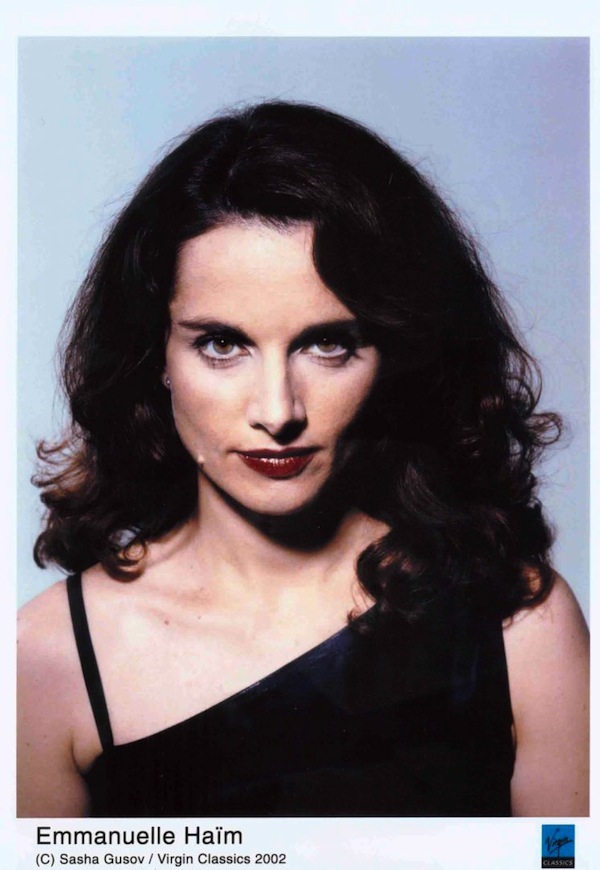Review: Scottish Chamber Orchestra/Emmanuelle Haïm (*****)
It’s no surprise that the young French harpsichordist and conductor Emmanuelle Haïm has been dubbed ‘Ms Dynamite’ by certain critics. Her fiery interpretations, brimming over with energy and enthusiasm, were much in evidence in a sparkling performance with the Scottish Chamber Orchestra at the Queen’s Hall on Thursday 12 Jan that contrasted music by Handel with a suite by one of her beloved French Baroque composers, Rameau.
She also put the SCO through its period-aware paces, drawing from it a glowing, transparent sound with pristine strings, characterful woodwind and resonant brass.
It was Handel’s famous Water Music (well, two suites from it, at least), written for George I’s excursion along the Thames, that was the best-known piece on the programme. Haïm brought some startling new perspectives to the classic – there were brilliant colours from the SCO throughout, and galloping, urgent rhythms. Her rigaudons scurried about, and the second gigue seemed to disappear into nothingness – with Haïm seeming to try to snatch it back from thin air.
Recorder player Pamela Thorby led an intoxicating minuet, with prominent pizzicato strings and theorbo, and Haïm ensured there was a sense of grand celebration in the more extrovert movements. Her movements were surprisingly robotic at times, but the performances she drew from the SCO were anything but – lithe, elegant and nuanced.
Haïm has long championed French Baroque composers, and her delivery of a suite of instrumental pieces from Rameau’s opera Dardanus was revelatory, full of thrilling energy and daring effects. Thundering drums accompanied the folk-like ‘Tambourin’, and the astonishing ‘Bruit de guerre’ was exactly that, with the orchestra evoking charging cavalry joining the fray.
Swedish-born soprano Camilla Tilling was the soloist in Handel’s cantata of unrequited love Delirio amoroso. Her performance ranged from fury and despair to resignation, and was full of a generous sincerity throughout – quite an achievement in a piece whose rapid runs and unfeasibly long held notes seem specifically designed to give the singer a hard time.
She occasionally lost the focus to her note slightly, and there was sometimes a lack of definition in her upper register, but her resourceful characterisation brought the work’s volatile emotions immediately to life, and there was an appealing simplicity to her interpretation that was at times almost child-like.
Tilling made an expected return to the stage for Haïm’s encore, the infernally catchy ‘Danse des sauvages’ from Rameau’s Les Indes galantes, which sent the audience out of the hall with a spring in its step and a tune to whistle.
